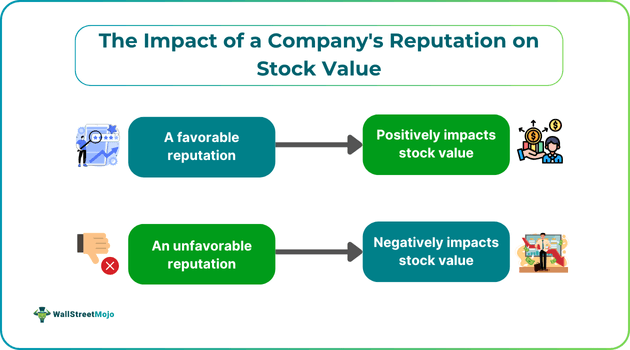The Impact of a Company's Reputation on Stock Value
Table of Contents
Introduction
Among the various factors that can influence the stock price of any company, reputation is an aspect that can have a significant impact on the decision-making of investors. A favorable reputation indicates a stable future and financial position, which are appealing characteristics to investors when they evaluate stocks for investment. On the other hand, when a company’s reputation is damaged because of lawsuits, like in the case of Paragard IUD lawsuit, or illegal practices, data breaches or product failures, it can have a serious negative effect on the stock price.

If you want to develop a comprehensive understanding of the relationship between company reputation and stock value, you have come to the right place. In this article, we’ll delve into different elements like legal issues and business operations that can affect investor confidence and how market participants respond to reputational risk.
How Investors React to Reputational Risk
Reputation risk in finance refers to the possibility of damage to the reputation of an organization, which can result in key stakeholders, including customers, developing a negative perception of the company. This can affect brand value and the financial position.
Keep in mind that there are various reasons that can impact brand value and financial performance. For example, poor corporate governance, negative publicity, and unfulfillment of commitments associated with corporate social responsibility or CSR can affect stock market perception with regard to a company. If you wish to know about the impact of CSR on brand value and a business’s financial performance in detail, you can refer to this MDPI study.
Note that the financial consequences can be extreme if there’s any negative influence on the business’s reputation. The company’s income can drop significantly owing to lower sales.
As a result of the corporate reputation impact, existing shareholders may sell their shares, and most new investors may not want to purchase the company’s shares. This, in turn, leads to a decrease in the stock price of the company.
One must remember that environmental, social, and governance (ESG) uncertainty can have a significant impact on the reputation of a company, too, and influence the stock price. If individuals wish to understand the relationship, they can check out the Nature journal.
In this section, let us find out how legal challenges influence the relationship between company reputation and stock value.
Legal Issues and Their Ripple Effects
Legal issues involving a company can cause substantial damage to the reputation of an organization and affect its stock price. The legal challenges may comprise regulatory investigations, lawsuits, regulatory non-compliance, and fraud accusations. If a company is involved in any such controversy, investor confidence declines as the perceived risk rises. After all, the chances of sales decreasing increase because customers may start losing trust in the organization.
It is key to note that media coverage usually amplifies the effect of such legal issues. Indeed, media coverage concerning a company’s legal issues can cause panic among investors who refrain from investing in the stock and sell their holdings if they are existing shareholders. Also, even if there is any rumor of malpractices concerning a company or any possibility of a probe by any regulatory body, the stock price may drop significantly as key stakeholders lose trust.
Investor Confidence and Price Sensitivity
Investor confidence is a key element that is associated with reputation risk and stock value. If an investor is confident about a particular stock, they may want to purchase more shares in an attempt to generate financial gains in the future. The increased demand for the stock leads to an increase in the share price. As the price rises, it can further increase the confidence of investors, and they view the security as less risky.
On the other hand, when any negative news materializes with regard to a stock or the company announces poor financial results, investor confidence declines. When this happens, investors do not want to purchase shares of the company and the reduced demand results in reduced prices. As demand falls, investor confidence declines further, which negatively impacts the price and raises the perceived risk. This leads to a bearish stock market perception.
Business Operations and Long-Term Value
When a business carries out its operations efficiently with transparency while meeting all ethical standards, it can lay the groundwork for sustainable growth over the long term. Indeed, this approach is key when it comes to generating value. The transparency and consistency play a vital part in gaining the trust of the key stakeholders, including customers. When that happens, the reputation of a business improves, and the sales often rise as well because of this. It results in the increased demand for the company’s shares, and the rise in demand boosts the stock price.
Having said that, if a company has different operational issues and fails to maintain transparency with its stakeholders, its reputation can be damaged. This can lead to customers and investors losing trust in the company, which increases the perceived risk and negatively affects the stock price.
Various operational, legal, and financial aspects can influence a company’s reputation in the market. Now that you have a clear idea regarding the association between company reputation and stock value, we hope that you will factor in such aspects to make more informed decisions.
